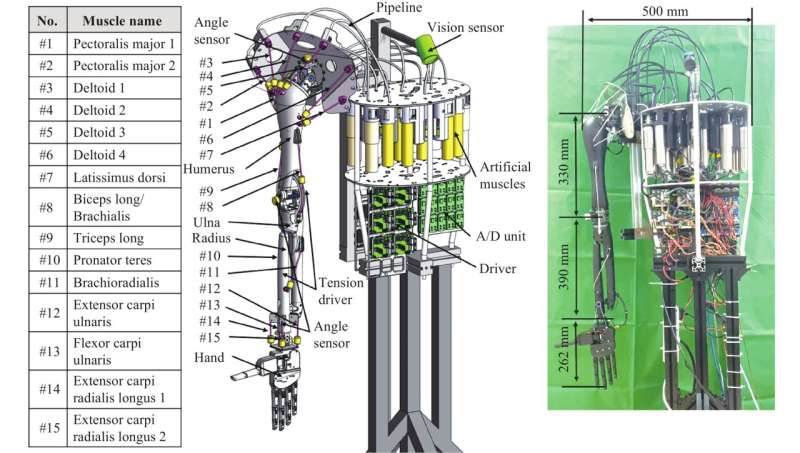Brain-inspired intelligent robotics: Theoretical analysis and systematic application
by Beijing Zhongke Journal Publising Co.

Robots have become a crucial indicator for measuring the competitive strength of a country in science and technology. Robotic systems have made advancements in fields such as mechanical engineering, control and artificial intelligence technologies. However, the performance of current robotic systems still includes limitations and cannot satisfy the demands of an increasing number of applications. In order to address these problems, researchers have constructed a brain-inspired intelligent robotic system.
A team of scientists led by Professor Qiao Hong from the State Key Laboratory of Management and Control for Complex System, Institute of Automation, Chinese Academy of Sciences, has conducted a review of cutting-edge works along the research chain of brain-inspired robots. Their study is published in the journal Machine Intelligence Research.
First, they introduce core neural mechanisms in vision, decision-making, control, and body structure and corresponding brain-inspired algorithms. Then they present the software and hardware system integration. The simulation platform for brain-inspired robots integrates brain-inspired algorithms in vision, decision-making and movement control, providing efficient tools for researchers from different fields.
The hardware platform was designed to mimic the human musculoskeletal system, providing a physical system to validate the performance of the brain-inspired algorithm.
“Brain-inspired motion-learning algorithms can use sparse rewards to realize generalized control policy learning. With this method, robotics can accomplish a series of manipulations after simple training. System robustness comes from redundancy, and anti-interference can improve system reliability. The special muscle actuator provides non-linear dynamics and coupled feedback modulation, which can reduce the effects of disturbances from the control input and environment,” the researchers explain.
Furthermore, they make assumptions about the future development of next-generation robotics. “Next-generation robotics could be developed with numerous brain-inspired algorithms and novel musculoskeletal structures. Organic structural design and hardware construction should be reinforced and emphasized. We hope that this generation of robotics can provide inspiration and reference for brain-computer interface control,” they write.
More information:
Hong Qiao et al, Brain-inspired Intelligent Robotics: Theoretical Analysis and Systematic Application, Machine Intelligence Research (2023). DOI: 10.1007/s11633-022-1390-8
Provided by
Beijing Zhongke Journal Publising Co.
Citation:
Brain-inspired intelligent robotics: Theoretical analysis and systematic application (2023, April 10)
retrieved 10 April 2023
from https://techxplore.com/news/2023-04-brain-inspired-intelligent-robotics-theoretical-analysis.html
This document is subject to copyright. Apart from any fair dealing for the purpose of private study or research, no
part may be reproduced without the written permission. The content is provided for information purposes only.
For all the latest Technology News Click Here
For the latest news and updates, follow us on Google News.
